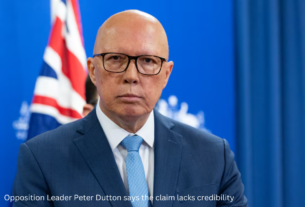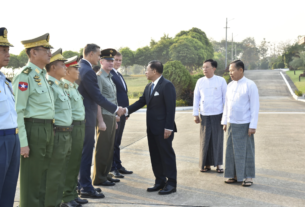Kosovo’s political crisis deepens as major parties refuse to form a coalition after the recent elections. The deadlock raises concerns about governance and stability in the country.
“The lack of compromise threatens essential government functions,” political analyst Ilir Deda said. Parties continue to dispute election results, delaying the formation of a new administration.
The ruling party failed to secure enough seats, forcing it to seek alliances. Opposition parties, however, refuse to join, citing policy differences and past disputes.
Kosovo’s constitution requires a coalition if no party gains a majority. Without one, a prolonged deadlock could force new elections.
International observers warn that political uncertainty affects economic growth and foreign investment. European Union officials urge leaders to resolve the crisis quickly.
President Vjosa Osmani holds meetings with party leaders but finds no agreement. If no government is formed soon, a second election might be the only option.
Opposition leader Albin Kurti says his party will not cooperate with rivals. He argues that new elections would better reflect voter intentions.
Kosovo faces pressure from Western allies to ensure stability. The U.S. and EU stress that prolonged disputes harm the country’s global standing.
“Political deadlock weakens Kosovo’s institutions,” EU envoy Miroslav Lajčák said. He urged leaders to prioritize governance over party interests.
A delay in forming a government affects key issues such as economic reforms and relations with Serbia. Talks between the two countries remain uncertain.
Kosovo declared independence from Serbia in 2008, but tensions persist. Serbia does not recognize Kosovo and disputes remain unresolved.
Elections were held amid concerns over corruption, unemployment, and EU integration. Many Kosovars demand political reforms and better leadership.
If a coalition agreement remains elusive, Kosovo could face months of political uncertainty. Analysts warn that instability could disrupt progress on major policies.
Voter turnout in the elections was lower than expected. Many citizens express frustration with the political system and lack of clear leadership.
The country’s fragile political landscape makes quick resolutions difficult. With parties refusing to compromise, the crisis could drag on indefinitely.
The Central Election Commission finalized results, but legal challenges persist. Some opposition parties claim voting irregularities influenced the outcome.
International organizations, including the OSCE, monitored the elections. Their reports confirm the voting process met basic standards despite minor issues.
Public trust in institutions remains low. Many Kosovars believe political elites prioritize personal interests over national progress.
If leaders fail to form a government soon, Kosovo’s economy and diplomatic efforts could suffer. The international community continues to watch the situation closely.




